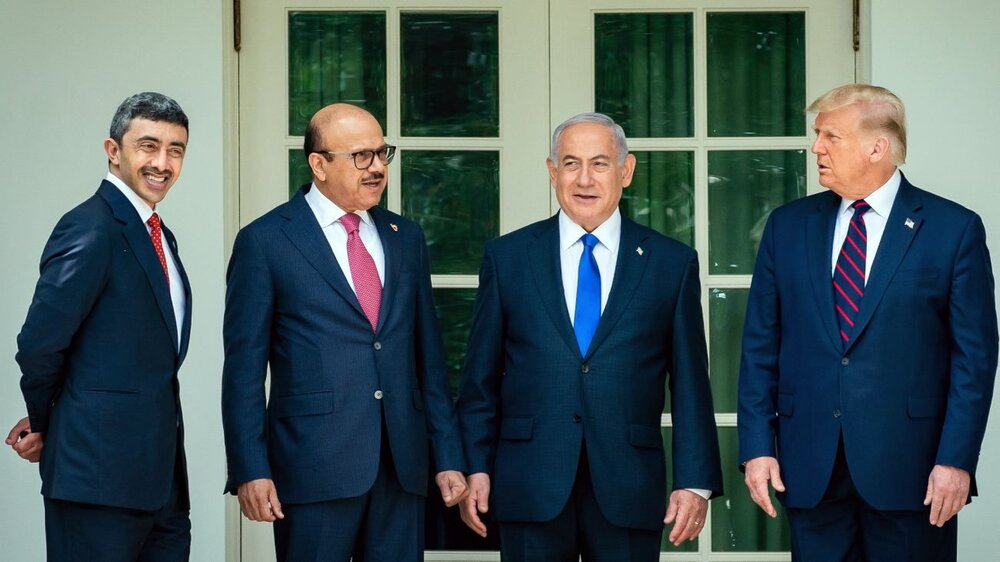Malign objective

TEHRAN – While the new U.S. administration is still a “long way” from fully rejoining the 2015 Iran nuclear deal, Israel and its Arab allies raise alarm bells about any efforts by the U.S. or its European allies to revive the nuclear deal, a move that will not only complicate the situation around the nuclear deal but will also escalate tensions in the region.
Israel and its Arab allies in the Persian Gulf region lived their dreams vis-à-vis Iran during the Trump administration. National security officials of the Trump administration never turned down the demands of the Israel-Arab axis against Iran. As Iran’s ambassador to the UN Majid Takht-Ravanchi put it, Israeli Prime Minister Benjamin Netanyahu and other leaders in the region renewed their hopes of squeezing Iran.
But this axis felt the whole world came crashing down after Joe Biden, who had vowed to rejoin the Iran nuclear deal, won the U.S. presidential election in November. They demanded many things, from being included in the next round of talks with Iran to expanding the deal as if the reopening of the deal – officially known as the Joint Comprehensive Plan of Action (JCPOA) – was set in stone.
These demands came after Biden announced following his election win that he still believed that the JCPOA should be revived though he described the process of reviving the deal as “hard” and “very difficult.”
These Biden’s remarks sent the Israel-Arab axis scrambling to dismantle any prospect for rapprochement between Iran and the U.S. under President Biden. Firstly, they called on Biden to include them in any future talks over Iran’s nuclear program.
A few weeks after Biden was elected president, Saudi Arabia’s Foreign Minister Faisal bin Farhan Al-Saud said in an interview with CNBC that Donald Trump’s “maximum pressure” campaign against Iran has set the groundwork for a new agreement with Iran and that Saudi Arabia should be a part of any potential negotiations between the incoming U.S. administration and Iran on a new nuclear deal, which according to bin Farhan, would not only limit Iran’s nuclear activities but also seek to address what he called its “regional malign activity” as well as Iran’s missile program.
The Saudi foreign minister called such a deal “JCPOA++.”
Iran rejected the Saudi offer to seek “JCPOA++.” The Biden administration has not commented on the Saudi offer.
The Saudis called for “improving” the JCPOA. But now it seems that the Saudi demand did not satisfy the Israelis who went so far as to veto any effort to even improve the nuclear deal. While Iran roundly rejected any effort to reopen the JCOPA, Israelis announced that they would oppose the deal in its entirety.
Aviv Kochavi, the chief of staff of Israeli armed forces, issued on Tuesday stark threats against Iran and its allies in the region. He also said that Israel is not welcoming the expected efforts by the U.S. and its European allies to revive the JCPOA.
“I would like to clarify my position regarding the JCPOA: Even if an improved agreement is reached, it will be a bad agreement at the operational and strategic level. Therefore, such an agreement must not be enabled,” Kochavi said in remarks delivered at the Israeli Institute for National Security Studies 14th Annual International Conference.
The remarks signify a change in the Israeli and Arab positions toward Iran. Back in 2015, the Israelis and their Arab allies were wary of President Obama giving Iran what they called a carte blanche to expand its influence in the region. But now, with Biden trying to revive the deal, they no longer seem to harbor the same concerns. Instead, they are likely concerned that Biden would dismantle a pressure campaign primarily designed to bring about regime change in Iran.
